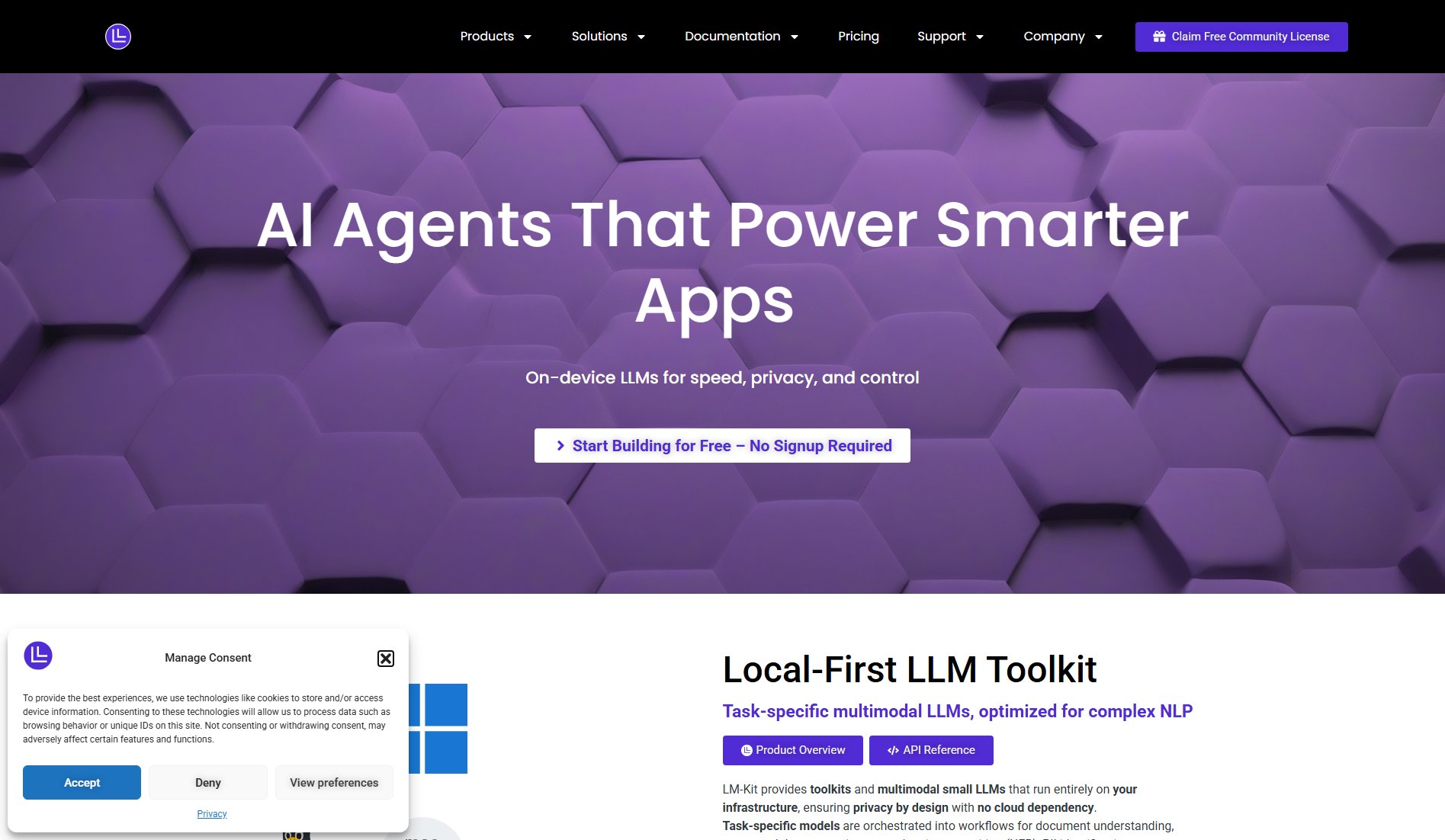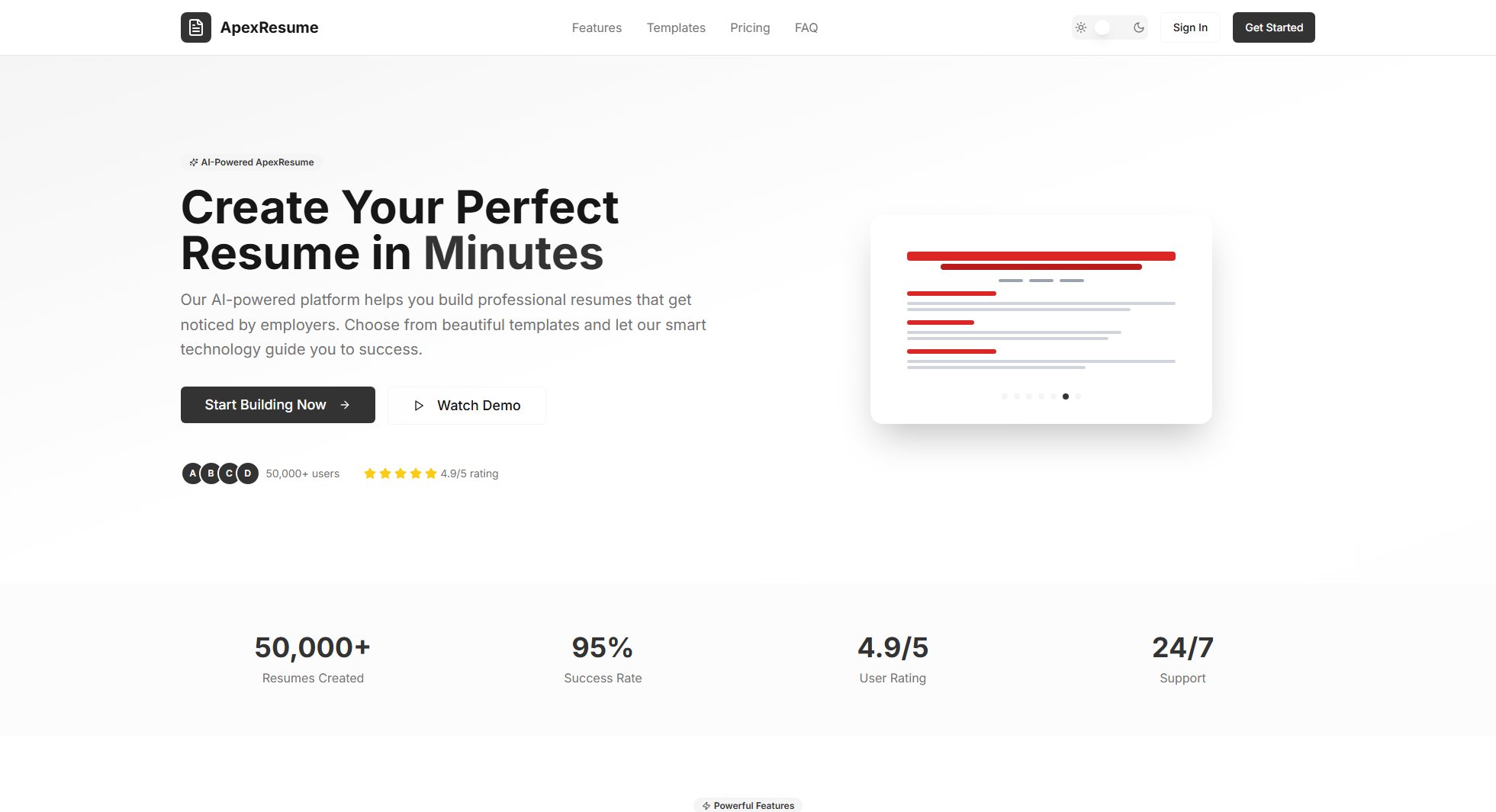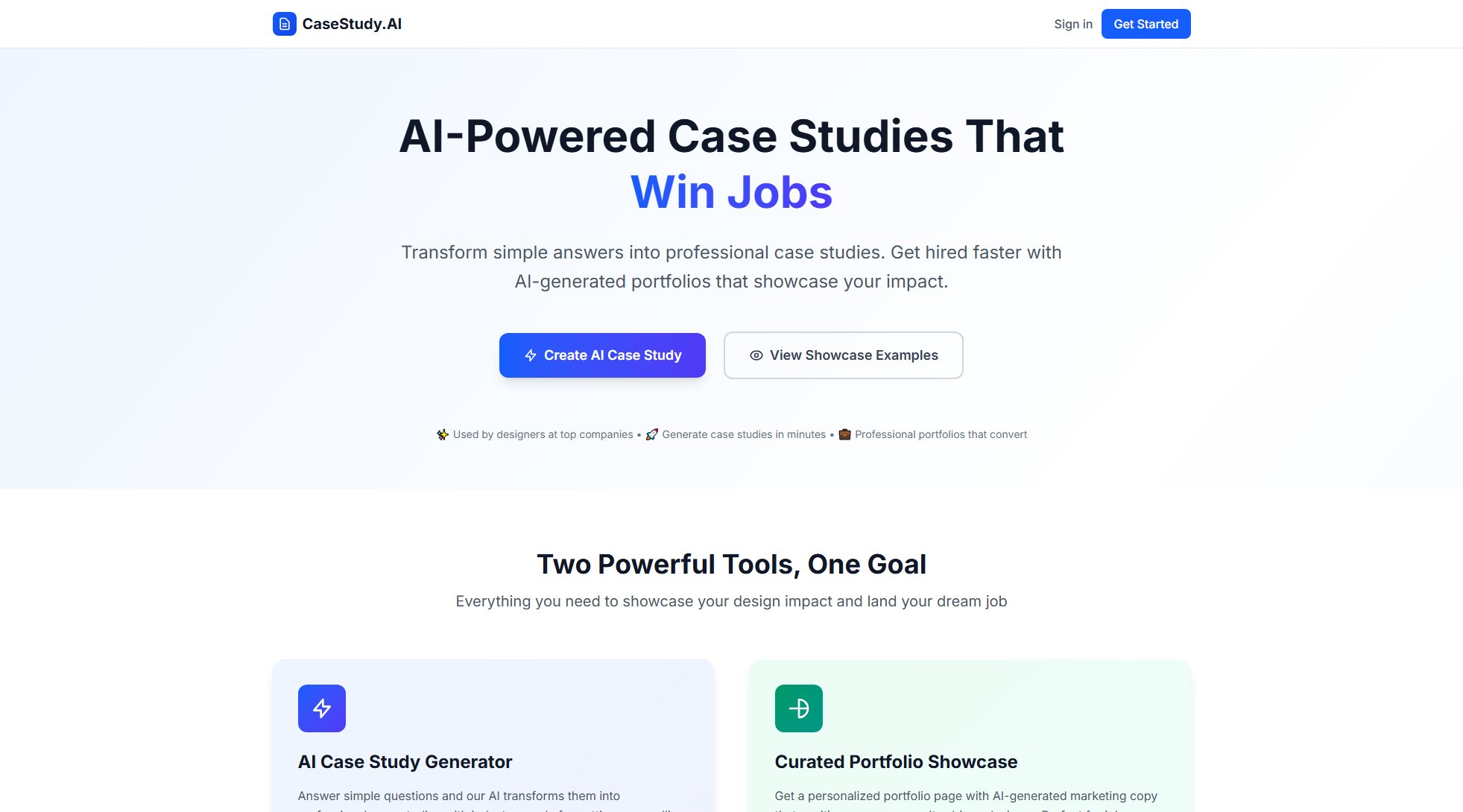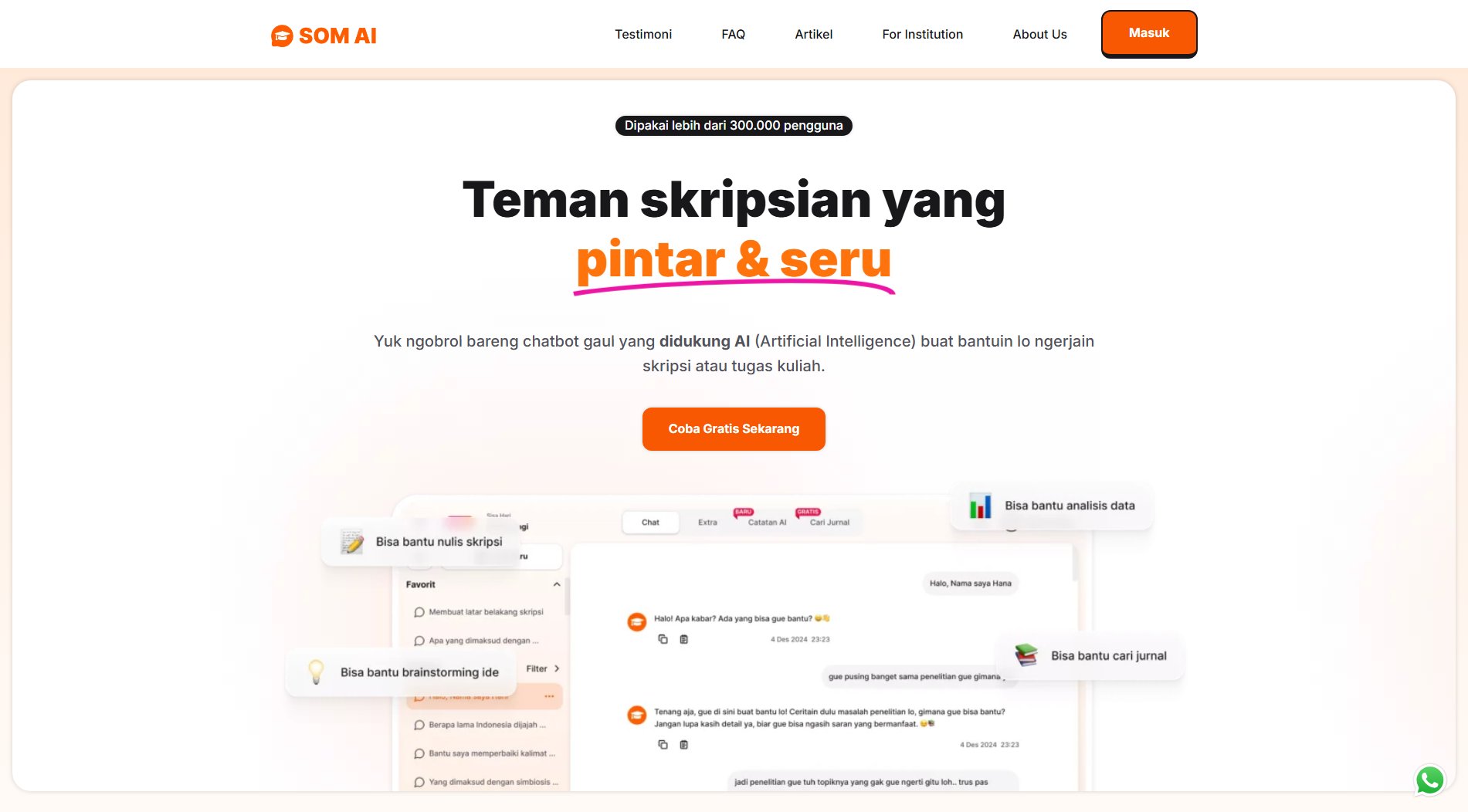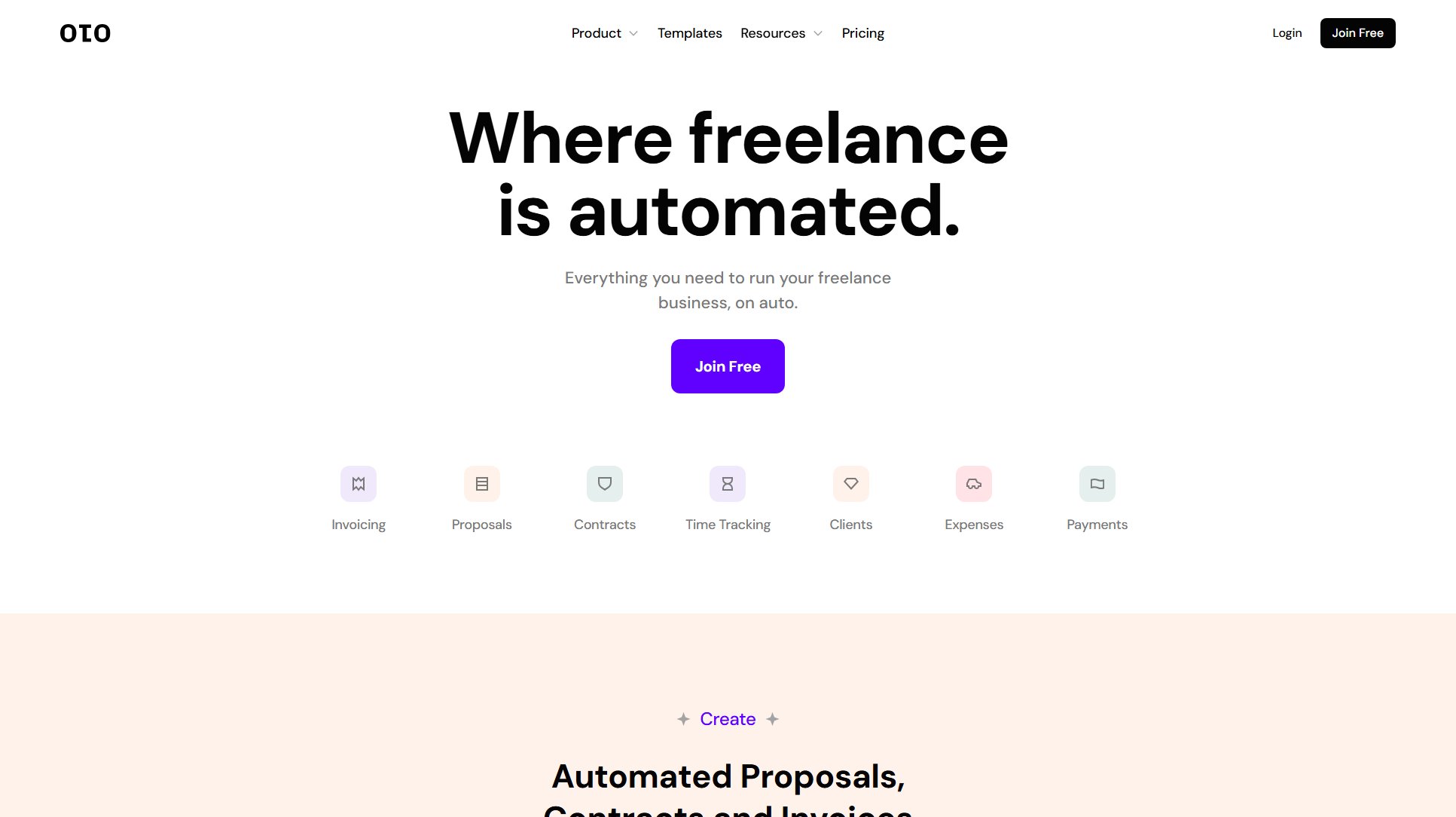Wisfr
AI-driven automation for smarter workforce management
What is Wisfr? Complete Overview
Wisfr is an intelligent automation platform that merges human expertise with AI-driven solutions to transform repetitive tasks into strategic outcomes. It helps businesses automate tasks, optimize schedules, and gain actionable insights through its comprehensive AI Agent Platform. Targeting enterprises and professionals across various industries, Wisfr addresses key pain points such as inefficiency in repetitive workflows, manual scheduling challenges, and lack of real-time workforce intelligence. With integrations to popular tools like Jira, Salesforce, and Zendesk, Wisfr ensures seamless adoption and immediate productivity gains. Its AI-driven automation can save users up to 24 hours per week, making it an essential tool for businesses looking to enhance operational efficiency.
Wisfr Interface & Screenshots
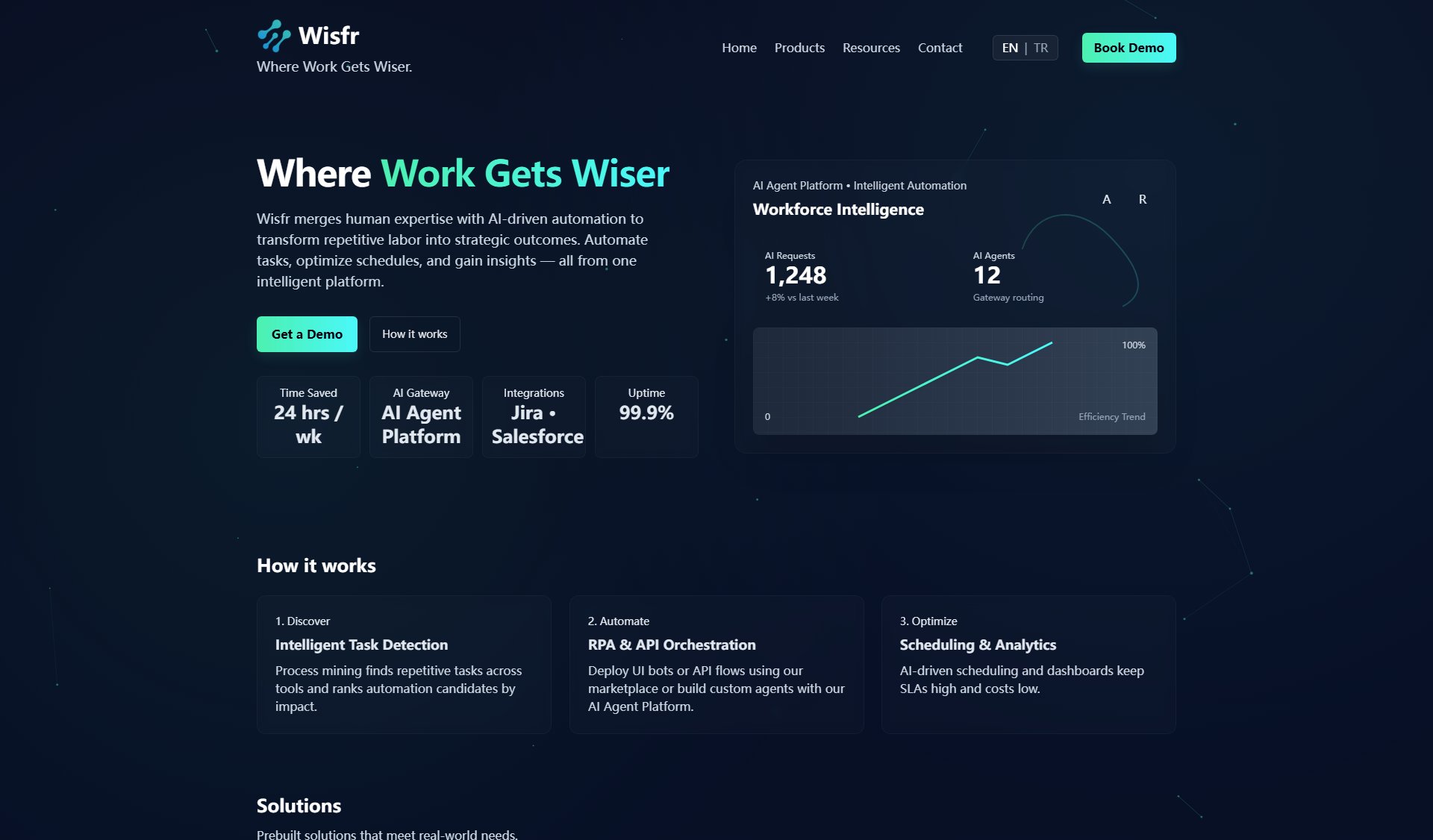
Wisfr Official screenshot of the tool interface
What Can Wisfr Do? Key Features
Intelligent Task Detection
Wisfr's process mining technology identifies repetitive tasks across various tools and ranks them based on automation potential. This helps organizations prioritize high-impact automation opportunities, ensuring maximum efficiency gains.
RPA & API Orchestration
The platform supports both UI-based bots and API-driven workflows. Users can deploy pre-built automation solutions from the marketplace or create custom agents using Wisfr's AI Agent Platform, tailored to their specific needs.
AI-Driven Scheduling & Analytics
Wisfr's intelligent scheduling algorithms optimize workforce allocation while maintaining high SLAs. Real-time dashboards provide insights into automation performance, helping businesses reduce costs and improve efficiency.
Prebuilt Industry Solutions
Wisfr offers ready-to-use automation solutions for call centers, retail operations, and finance departments. These include call summaries, intelligent routing, shift planning, inventory sync, and compliance workflows.
Seamless Integrations
The platform integrates with popular business tools like Jira, Salesforce, Zendesk, and Workday, allowing organizations to automate workflows across their existing tech stack without disruption.
Best Wisfr Use Cases & Applications
Call Center Optimization
Automate call summaries, implement intelligent routing, and optimize workforce scheduling to reduce customer wait times and improve service quality.
Retail Operations
Streamline shift planning, synchronize inventory across systems, and automate sales reporting to enhance operational efficiency in retail environments.
Finance & Back Office
Automate invoice processing, implement reconciliation bots, and standardize compliance workflows to reduce errors and improve financial operations.
How to Use Wisfr: Step-by-Step Guide
Discover automation opportunities using Wisfr's intelligent task detection. The system analyzes your workflows to identify and prioritize repetitive tasks that can be automated.
Choose between pre-built automation solutions from the marketplace or create custom automations using Wisfr's AI Agent Platform. Deploy UI bots or API flows based on your requirements.
Monitor and optimize your automated workflows through Wisfr's analytics dashboard. The AI-driven scheduling system continuously adjusts to maintain efficiency and meet SLAs.
Scale your automation efforts by expanding to other departments or workflows. Wisfr's platform is designed to grow with your business needs.
Wisfr Pros and Cons: Honest Review
Pros
Considerations
Is Wisfr Worth It? FAQ & Reviews
On average, Wisfr users save 24 hours per week by automating repetitive tasks and optimizing workflows.
Wisfr integrates with Jira, Salesforce, Zendesk, Twilio, and Workday, among others. Custom integrations can be developed for enterprise customers.
Prebuilt solutions can be deployed in days, while custom automations may take weeks depending on complexity. Our team ensures fast onboarding.
Yes, Wisfr offers trials for qualified organizations. Contact our team to discuss your needs and set up a demo.
Wisfr employs enterprise-grade security measures including encryption, access controls, and compliance with industry standards.
